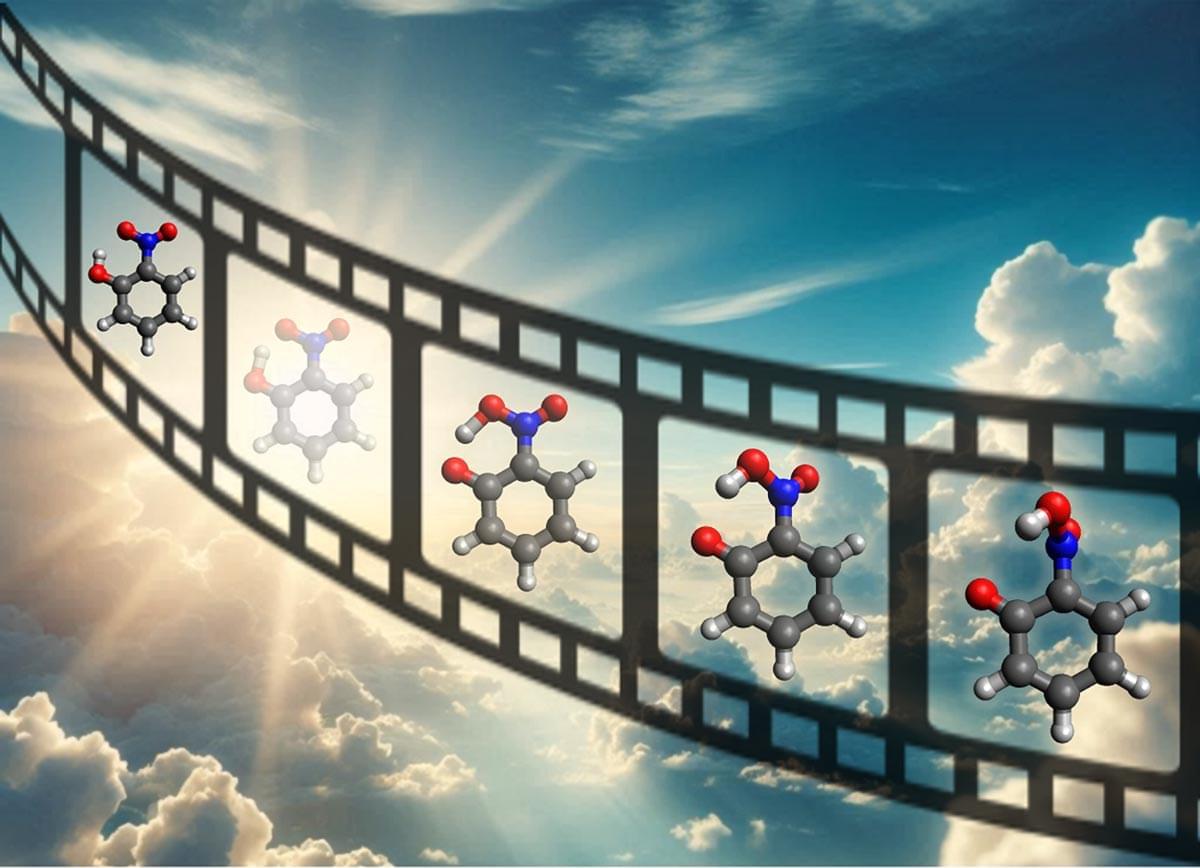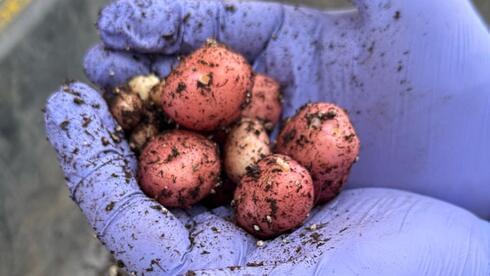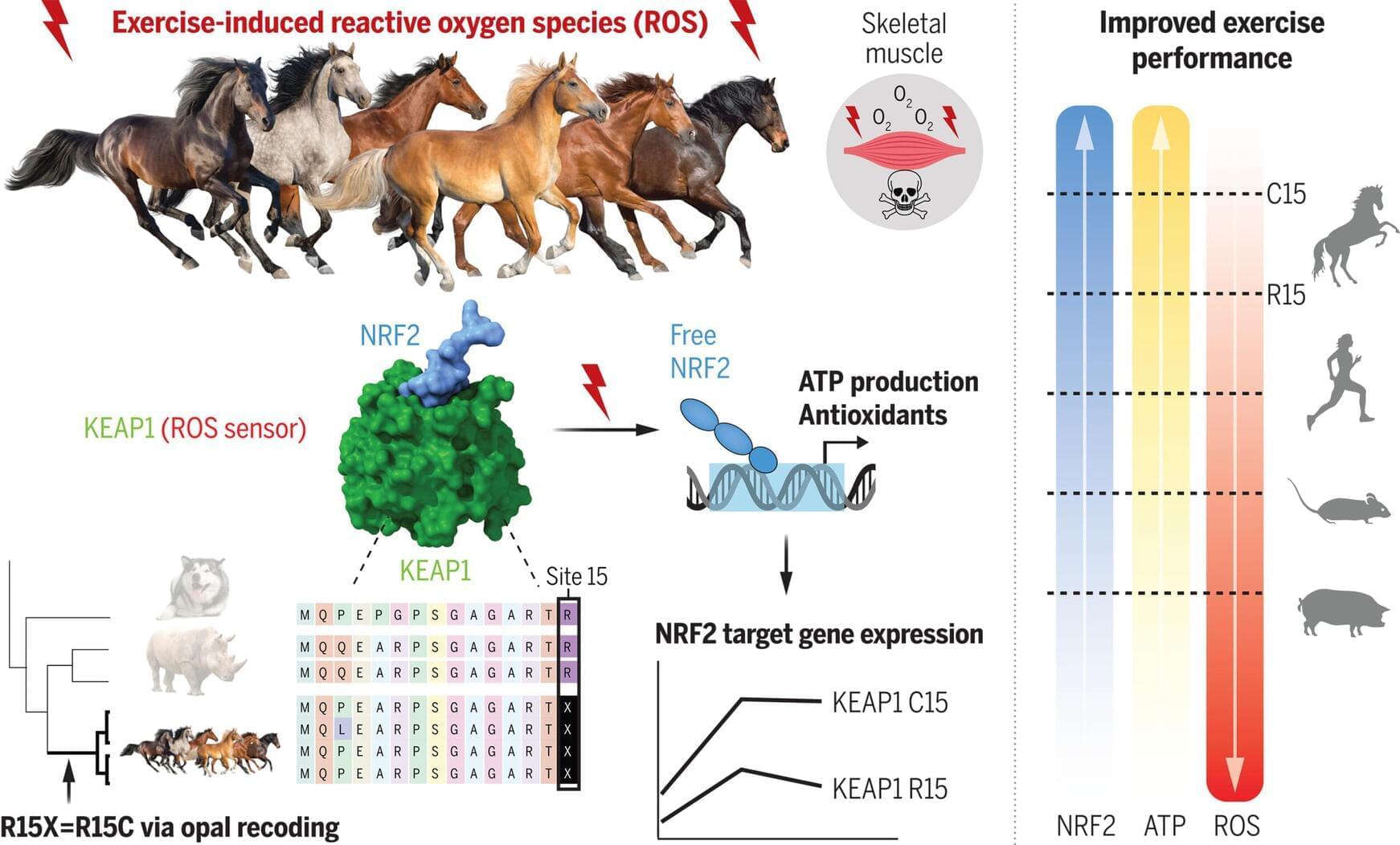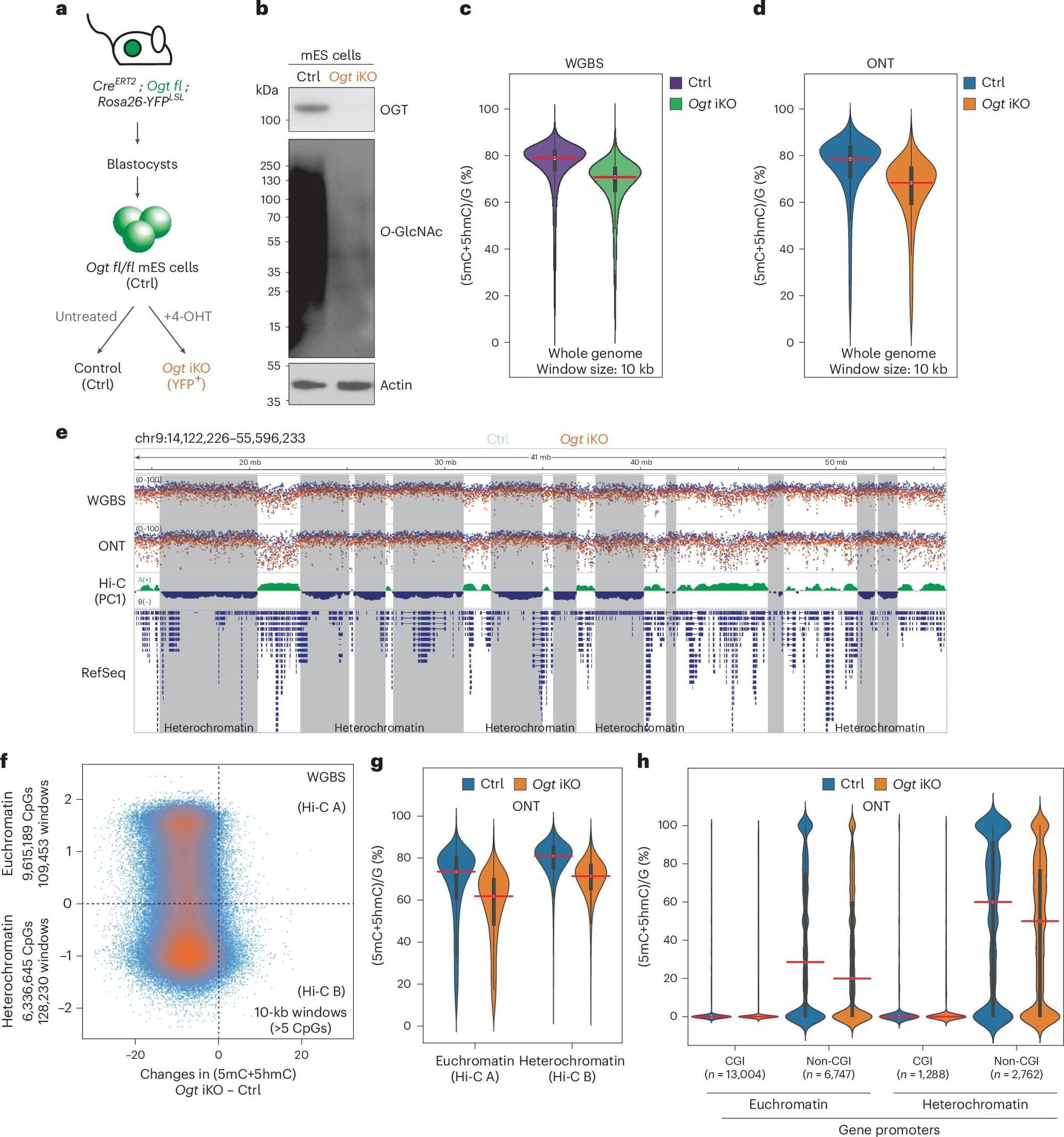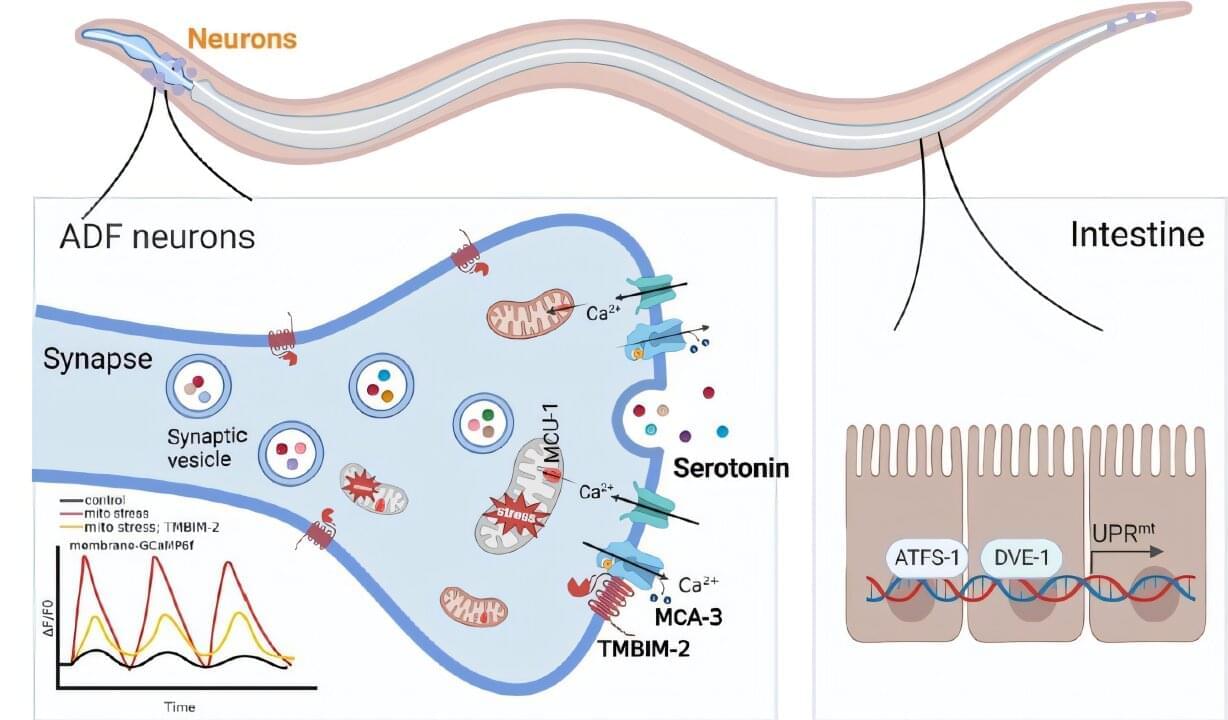The interactions between light and nitroaromatic hydrocarbon molecules have important implications for chemical processes in our atmosphere that can lead to smog and pollution. However, changes in molecular geometry due to interactions with light can be very difficult to measure because they occur at sub-Angstrom length scales (less than a tenth of a billionth of a meter) and femtosecond time scales (one millionth of a billionth of a second).
The relativistic ultrafast electron diffraction (UED) instrument at the Linac Coherent Light Source (LCLS) at SLAC National Accelerator Laboratory provides the necessary spatial and time resolution to observe these ultrasmall and ultrafast motions. The LCLS is a Department of Energy (DOE) Office of Science light source user facility.
In this research, scientists used UED to observe the relaxation of photoexcited o–nitrophenol. Then, they used a genetic structure fitting algorithm to extract new information about small changes in the molecular shape from the UED data that were imperceptible in previous studies. Specifically, the experiment resolved the key processes in the relaxation of o-nitrophenol: proton transfer and deplanarization (i.e., a rotation of part of the molecule out of the molecular plane). Ab-initio multiple spawning simulations confirmed the experimental findings. The results provide new insights into proton transfer-mediated relaxation and pave the way for studies of proton transfer in more complex systems.
